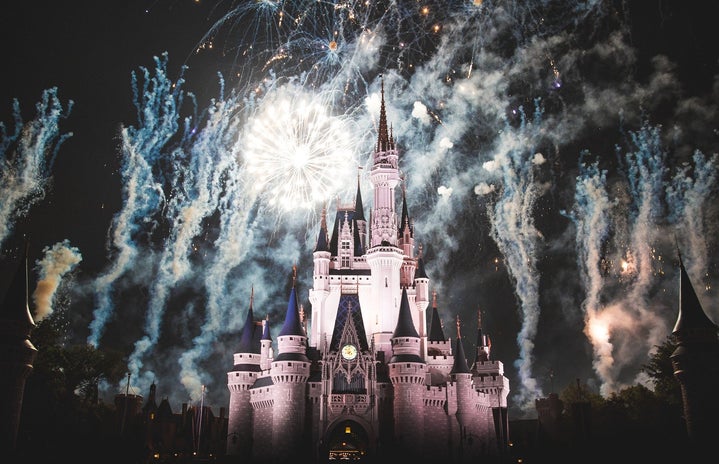Edited by: Sahana Inuganti
(Trigger warning: Parts of this article talk about death and rape; viewer discretion advised)
Sad article. Dark title. I know.
Most of the fairy tales you’ve grown up with are watered-down versions of sinister Danish, Italian and German stories. Not watered-down, bleached. You might’ve heard about this via a friend, a sibling, a ScoopWhoop article, a YouTube video—whatever your source of information was. If you haven’t, let me catch you up.
In the original version of ‘The Little Mermaid’ by Hans Christian Anderson, the little mermaid traded her voice for legs, but every step she’d take would be like “treading upon sharp knives”. That’s not all. If she failed to woo her prince, she wouldn’t turn into a mermaid again—she’d die. And she failed. With her love unreciprocated, she threw herself into the briny foam. Transforming into a spirit, she joined the “daughters of the air” on a 300 year-long quest to enter heaven. No Flounder. No Sebastian. No dinglehopper.
In the Brothers Grimm version, Cinderella was called “Cinder”-Ella because she had to sleep “by the hearth in the ashes.” There was no fairy godmother: when she was forbidden to go to the three-day-long ball, a white bird left her a golden dress by her mother’s grave. On rushing back home from the ball, Cinderella left a slipper behind because her prince had the entire stairway “smeared with pitch” to stop her from escaping again. To fit into her slipper, Cinderella’s sisters cut off a part of their heel and a toe. Eventually, their eyes were pecked out by pigeons. Yikes.
Giambattista Basile’s version of Sleeping Beauty, called ‘Sun, Moon, and Talia’ is rather dark. Talia wasn’t awakened by a prince’s kiss. The prince “felt his blood course hotly through his veins” and “bore the first fruits of love” with the unconscious woman: he raped her. Talia gave birth to two children (named ‘Sun’ and ‘Moon’), one of whom sucked the flax splinter out of her finger, waking her from her slumber. However, the prince was already a married man; a king. His wife (described as a “renegade bitch”) grew hell-bent on cooking Talia’s kids and secretly feeding them to him for his infidelity. Gory stuff.
These tales haven’t merely been re-made by Disney; they’ve been re-worked. People felt the need to hide darker truths from these tales; to make them kid-friendly; to make them right. To be fair, if Disney’s target audience is naive enough to yell, “Backpack, backpack!” at an animated character (who couldn’t care less), they’re too young to deal with darker truths. It’ll play on their mind. It’ll break them. Let kids be happy while they can. So they’re fed spoonfuls of false hope, masquerading as ‘morals’.
Don’t get me wrong—who doesn’t love bibbidi-bobbidi-boos, dancing thingamajigs, and happily-ever-afters? They’re like a nice, warm, jaadoo ki jhappi. They’re your little Patronus: evoked with happy memories of carefree times, stored in a pristine, protected bubble inside you— untouched, untainted by the horrors of the real world. But that’s the problem. The bubble hasn’t been protected, it’s been put in the dark—for way too long. That’s why you can’t keep up with how the world actually works; you can’t keep up with how people read about death and riots in the morning but move on by noon-time. But you’re also scared; you’re scared to grow numb to the horrors of the world like these people. That’s why you still nurture this bubble.
The problem isn’t Disney. The problem is Disneyfication, an actual word for “the transformation (as of something real or unsettling) into carefully controlled and safe entertainment or an environment with similar qualities” (Merriam-Webster). Disneyfication gets personal.
Think about it. Who/What introduced you to the real, darker facets of the world? Overheard conversations? Friends? Movie scenes? The internet? Did anyone sit you down, trying to break tidbits of a dark piece of news to you as it is? Barely. Because you weren’t ready for it. And you’re never really going to be ready for it. Voldemort’s trying to get in your head and destroy that safety bubble.
I still remember when I was told about the gang-rape case of 2012, three years later, in the 7th grade. All of us were by the volleyball court. A 12th grader mentioned that the youngest convict, who was a juvenile, was let off that day. None of us knew what she was talking about. Heck, I didn’t even know what the ‘R-word’ she kept repeating even meant. But when she spoke about how the victim was gruesomely assaulted, I couldn’t sleep for the next 3 days. I didn’t leave the house. Don’t good things happen to good people, and bad things happen to bad people?
I remember the time I was told that my grandfather had Alzheimer’s. I got to know about it this year, after he had passed away. Heck, I wasn’t even told about an uncle in the family who died when he was 19, and an aunt in the family who died when she was 3, until last year. But when I was told, 19-year-old me couldn’t grapple with the grief; nobody taught me how. It felt like uncharted territory. Don’t good things happen to good people, and bad things happen to bad people?
To know, or not to know?
To protect, or to inform?
The lines are blurred.
So, protect us a little, but don’t soften the blow only to leave us broken in the future. Take the example of getting morals across to kids. You still can—with the same, undistorted classics! Love can be beautiful, but one shouldn’t be blinded by it like the little mermaid was. Good things don’t always happen to good people, but karma does strike as it did for Cinderella’s sisters. And lastly, “Renegade bitch” is a great comeback for someone who wants to have your kids cooked.


